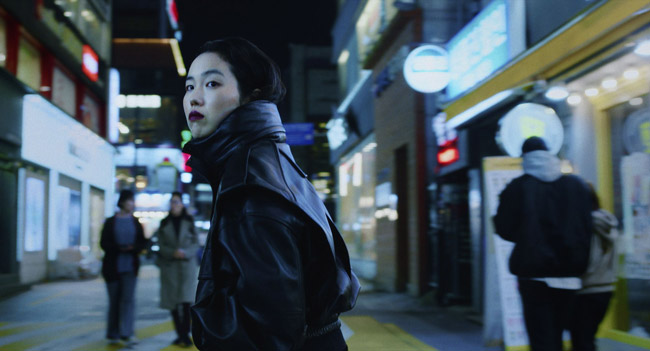Film Review: Retour à Séoul
- SUBSCRIBE
- ALREADY SUBSCRIBED?
BECOME A BONJOUR PARIS MEMBER
Gain full access to our collection of over 5,000 articles and bring the City of Light into your life. Just 60 USD per year.
Find out why you should become a member here.
Sign in
Fill in your credentials below.
What is the emotional fallout for mom, dad, and child when the child must be given away?
This question is at the heart of the powerful Retour à Séoul, the Davy Chou-directed film which got lots of buzz at Cannes. (The film’s English title is All the People I’ll Never Be). This French-Korean film, premiering in the “Un Certain Regard” category, was quickly snapped up and acquired by Sony Pictures Classics and MUBI before its premiere at Cannes. And it’s easy to see why it’s a hot title; this emotional tour de force has legs.
“She doesn’t look French,” a group of 20-somethings in Seoul whisper about their new French-speaking Korean friend, Freddie, who has just arrived from Paris. Freddie (short for “Frédérique”) is 25, and she was adopted as an infant by a couple in Paris. On seemingly a whim, she decides to travel to her birth country, South Korea, when her flight to Japan is canceled.
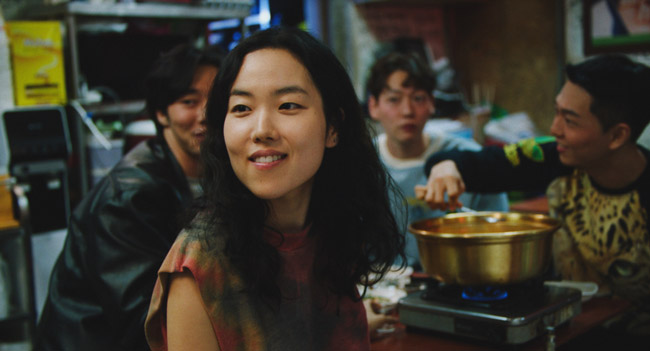
Retour à Séoul. Freddie with her friends. Courtesy of Film du Solange
She has two weeks in Seoul, which she reckons should be enough time to find her parents and meet them. Unfortunately, she encounters roadblocks at the adoption agency. They ask her why she didn’t bring her adoption file from Paris and if her adoptive parents there can send the required forms to her. The woman at the adoption agency shares with Freddie the name she was given at birth: She is called Yeon-Hee.
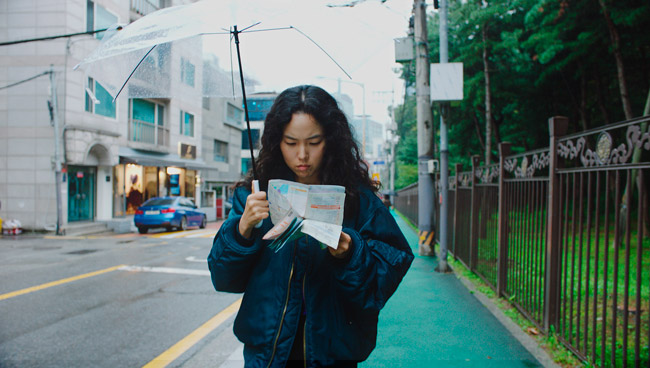
Retour à Séoul. Freddie searching for her parents. Courtesy of Film du Solange
When Freddie speaks with her French mom by video call in Paris, her mom says sadly, “We always talked about going to Korea together.” This movie is full of sadness and heartbreak, so make sure you pack your tissues with you see it. The adoption agency can connect Freddie with her birth father, who has two other biological daughters. In a sweet and awkward moment, he takes her shopping and buys her a pair of shoes, which she later throws away.
Freddie’s’ father drinks too much. He can’t emotionally handle Freddie’s return and becomes obsessive about her – sending message after message, calling endlessly, and even showing up at her accommodations drunk. He tells her over a meal in his home that he will help her find a Korean man to marry and that she should stay in Korea.
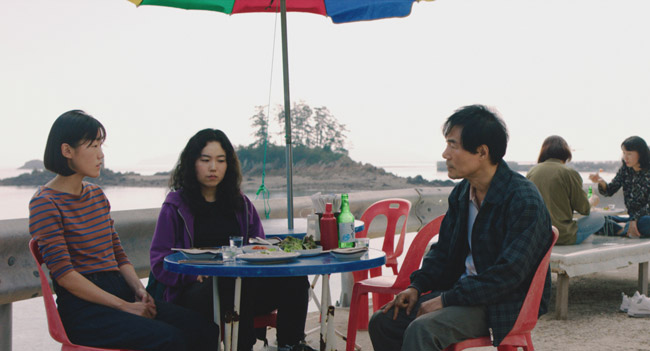
Retour à Séoul. Freddie with her alcoholic father. Courtesy of Film du Solange
Freddie tells him that her life and her home are in Paris, and that’s where her family is. Meanwhile, her mother is uncontactable. Freddie’s French-speaking Korean confidante, who lives in Seoul, has been nothing but a loving life raft to Freddie. When Freddie makes sexual advances towards her friend, the woman turns her face, shocked, and says, “You are a very sad person.”
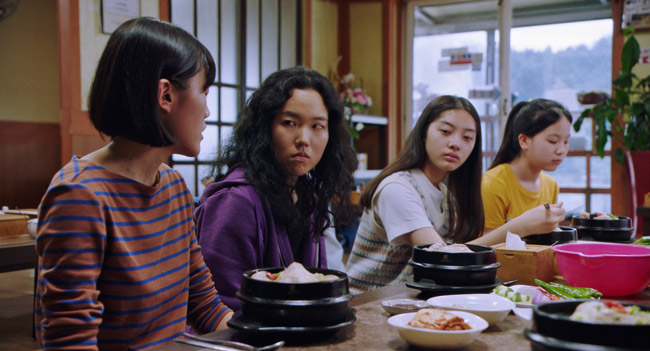
Retour à Séoul still. Courtesy of Film du Solange
Freddie leaves Seoul, and two years later, she is back. She is living in South Korea. She has a boyfriend, with whom she has an open relationship (we see her on a Tinder date with an older American man and she returns to her boyfriend to tell him about the date). She goes to parties with her friends, and overall, Freddie appears to be generally content. She is learning the language, and, minus some emails from him here and there, she has no contact with her birth father, who caused her stress her first time in Seoul. Finally, she gets word from the adoption agency that they finally received communication from her birth mother. She responded to the adoption agency’s telegrams, replying with a very brief telegram of her own, succinctly indicating: She does not wish to meet her daughter.
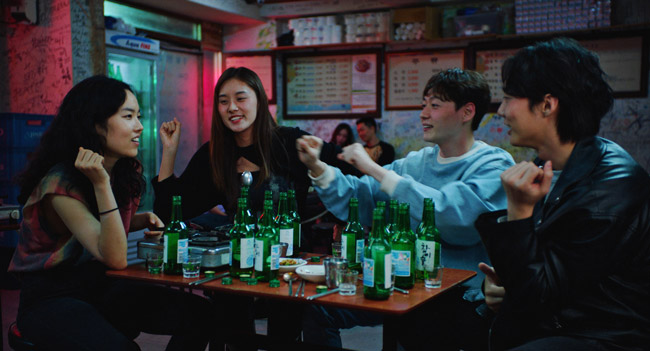
Retour à Séoul. Freddie drinking with her friends. Courtesy of Film du Solange
Freddie is devastated, but her quest to live a happy, fulfilled life continues. She goes on living her life. She gets a job working for a French company. Five years later, she has left South Korea but returns there from France with a new boyfriend in tow. She is coming to Seoul to meet her mother.
In a heartbreaking and tearful reunion at the adoption agency, her mom enters the room and seeing Freddie, asks the adoption agent, “Can I touch her?” I don’t think there was a dry eye in the theater at Cannes Film Festival during that scene.
But when Freddie finally contacts her mother again, after their first meeting, the email she sends to her mom’s email address reads “undeliverable.” But we get the sense that Freddie received a closure of some kind from their meeting, and maybe that’s enough. Maybe Freddie and her Korean mom didn’t need to be best friends or know each other deeply; they just needed to know the other was alive and cared. Freddie reconnects with her father, too. He doesn’t drink the way he used to, he says. While she doesn’t get the love she wants from her birth mom, her birth dad is eager for Freddie to be in his family fold, and she gets the family warmth she has long craved.
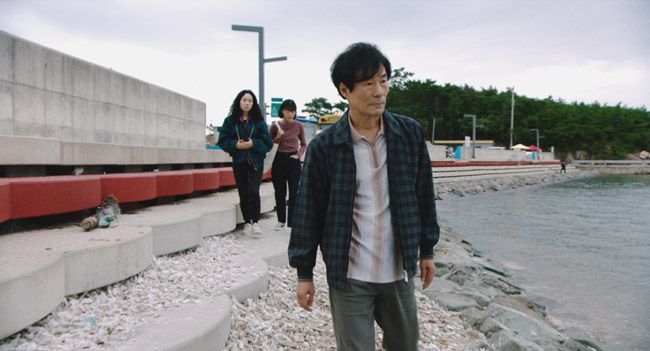
Retour à Séoul still. Courtesy of Film du Solange
This film was A+ from start to finish. We’re invested in Freddie throughout, even when she behaves poorly – sometimes, especially when she behaves poorly. She is a woman in pain who wants the love she felt she never received. And what’s more relatable than a human being going through a tough time?
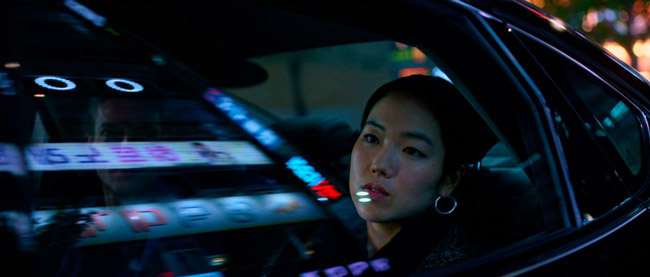
Retour à Séoul. Freddie in a car. Courtesy of Film du Solange
Lead photo credit : Retour à Séoul, courtesy of Film du Solange
More in Cannes 2022, Cannes film festival, cannes film festival 2022, film review, Retour à Séoul
